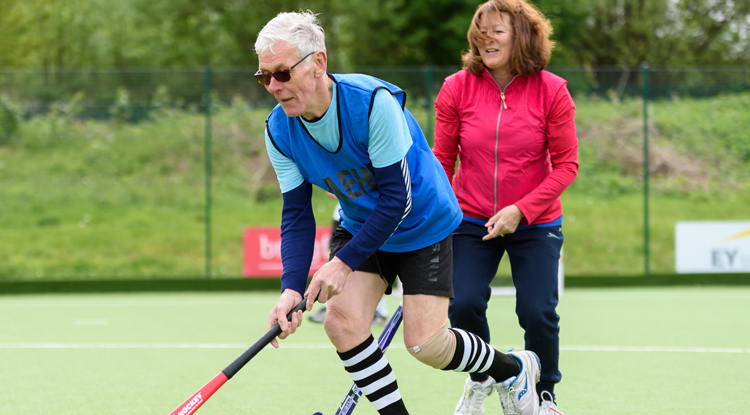The Mental Benefits Of Sport
The mental benefits of sport and physical activity cannot be overstated.
Sport has always been known for their physical benefits. In recent years, research has also found that sport participation can also positively affect your mental health.
For more information about how physical activity specifically affects your mental health and wellbeing, check out our resources page, or read on to find out more about all the mental benefits of sport.
Sport improves your mood
Want a burst of happiness and relaxation? It’s time to try physical activity!
Whether you are playing sports, working out at a gym or taking a brisk walk, physical activity triggers brain chemicals that make you feel happier and more relaxed.
Team sports in particular provide a chance to unwind and engage in a satisfying challenge that improves your fitness.
They also provide social benefits by allowing you to connect with teammates and friends in a recreational setting.

Sport improves your concentration
Regular physical activity helps keep your key mental skills sharp as you age. This includes sharp thinking, learning, and using good judgment. Research has shown that doing a mix of aerobic and muscle strengthening activities is especially helpful.
Participating in this kind of activity three to five times a week for at least 30 minutes can provide these mental health benefits, which will last as you age.
Sport reduces stress and depression
When you are physically active, your mind is distracted from daily stresses. Being active can help you to avoid getting bogged down by negative thoughts. Exercise reduces the levels of stress hormones in your body.
At the same time, physical activity stimulates production of endorphins. These are natural mood lifters that can help keep stress and depression at bay. Endorphins may also leave you feeling more relaxed and optimistic after a hard workout on the field. Experts agree that to determine the relationship between sports and depression, they need more research.
Sport improves sleep habits
Sport and other forms of physical activity improve the quality of sleep. It does this by helping you fall asleep faster and deepening your sleep.
Sleeping better can improve your mental outlook the next day, as well as improving your mood. Just be careful not to engage in sports too late in the day. Evening practices within a few hours of bedtime may leave you too energized to sleep!
Sport helps you maintain a healthy weight
The Centers for Disease Control and Prevention (CDC) recommend sports participation as a healthy way to maintain weight.
Individual sports, such as running, cycling, and weightlifting, are all particularly effective ways to burn calories. Staying within a recommended weight range reduces the likelihood of developing diabetes, high cholesterol, and hypertension.
Sport boosts your self-confidence
The regular exercise that comes with playing sport can help boost your confidence and improve your self-esteem. As your strength, skills, and stamina increase through playing sports, your self-image will improve as well. Sport provide you with a sense of mastery and control, which often leads to a feeling of pride and self-confidence. With the renewed vigour and energy that comes from physical activity, you may be more likely to succeed in tasks off the playing field as well as on it.
Sport has been linked to leadership traits
Team sports such as football, baseball, and basketball are breeding grounds for leadership traits. Studies done in high schools reveal a correlation between sports participation and leadership qualities. Because of the opportunity to train, try, win, or lose together, people involved in sports are naturally more inclined to adopt a “team mindset” in the workplace and in social situations. The team mindset leads to strong leadership qualities over time.
Mental benefits of sport for young children
Sport can benefit children in many of the same ways that they benefit adults. The biggest difference is that when children start participating in sports at a young age, they are far more likely to stay active as they grow older. The same source also suggests that participating in a team sport improves academic performance, leads to better scholastic outcomes, and results in more after school participation.
Mental benefits of sport for older people
Sports isn’t just for young people! On the contrary, older people who are active are shown to be healthier and on average live longer. In remaining active as you get older, you can strengthen your muscles and bones, and reduce risks such as falls and heart disease.
Want to find out more?
If you want to get started, check out our sports for mental wellbeing resources to start your journey. We also have a load of insight and data surrounding sport, physical activity and wellbeing which you can find here.
Alternatively, if you’re looking for ways to get active yourself, why not explore our site to find an activity that’s right for you?